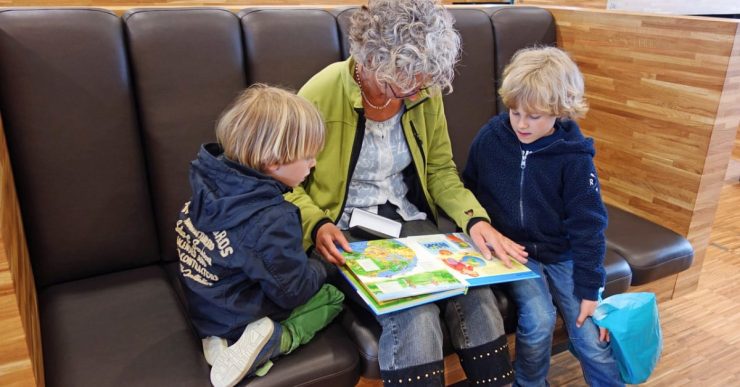applying the iQuiz method to verse and mystery
Goals
For the learner to have an opportunity to . . .
- Identify comprehension skills as being acquired early in life
- Identify elements in children’s literature relevant for all ages
- Assess the role of verse in children’s poetry and song lyrics
- Identify elements of verse that gives poetry popular appeal
- Apply iQuiz methods to lyrical verse and mystery narrative
Content
Reading is a life skill acquired early, mastered continuously.
- Toddlers name familiar items from pictures, such as dog, tree, house. Preschoolers notice rhyme. Kindergarteners predict what happens next in a story. Learners in primary school can find the message in a story from events.
- By high school, a reader can apply symbolism, analyze character development, and understand figures of speech.
I am almost inclined to set it up as a canon that a children’s story which is enjoyed only by children is a bad children’s story.
C. S. Lewis, “On Three Ways of Writing for Children” in On Stories, 1966
These iQuizzes on poetry appeal to the young, but explore elements relevant for readers of all ages.
- Young readers enjoy the use of vivid imagery, familiar themes, and content made memorable by sound (alliteration, rhyme, onomatopoeia).
- Turns out, adults do too—as poetry is in the lyrics of songs heard every day. It is in the jingles of commercials and in great quotations, such as “Ask not what your country can do for you, but what you can do for your country” (which is an example of chiasmus , reversal of word order to elaborate upon an idea).
An examination of comprehension skills among new readers simplifies the reading process and allows for focus on strategies.
- Many adults are so adept at reading that the process of comprehension needs to be slowed down to be understood.
- Even so, these iQuizzes on verse make use of pun, analogy, story genre, purpose, tone, and sequel. Aspects by no means limited to literature for the young.
What do you Think?
- What is the difference between verse, memes, lyrics, and poetry?
- Is reading comprehension among adults just more detailed or refined than among younger readers or are there substantial differences—and if so, what are they?



